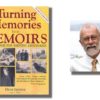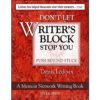
Fiction and memoir writing: When Is It not a Memoir?
Fiction and memoir writing—what’s the difference? I have been reading a memoir that has been doing well here in Maine (it’s by an excellent Maine writer)–I can’t vouch for its reach in the rest of the country. It was published by Houghton Mifflin Harcourt so I can only presume it is receiving support elsewhere.
It’s an interesting book, very well-written in terms of style and organization, but my nagging doubt [Free Membership required to read more. See below. ]
We'd love to have you access this content. It's in our members-only area, but you're in luck: becoming a member is easy and it's free.
Already a Member?
Not a Member Yet?

What to Do to Stay in the Memoir-Writing Conversation—And Why it’s Important.
I read professional journals. Poets and Writers from cover to cover. I receive the Maine Writers and Publishers Alliance e-newsletter weekly. It’s a membership newsletter and comes chock full of news about what other writers are doing, readings schedules, and announcements of book publications. Do you have…

Ten Questions On Memoir Writing
Questions On Memoir Writing
The following interview with me appeared in the Nov. 19, 2010, Oral History Education blog, and was later published in 2013. Over the years, these questions on memoir writing still rank as some of the most common questions I receive, and I have to say, the answers haven’t changed either–enjoy!
1. How did you get started in your profession of memoir writing?
I started writing autobiography-based fiction. Some of these have won literary awards, and, while I like that, I feel the most satisfaction from helping readers who are stimulated to tell their own stories after reading my work. This happened in 1988 when my first collection of short fiction, What Became of Them, came out.
After I had read for a group of senior citizens, I was overwhelmed by their eagerness to share their stories with me and each other. That’s how I began helping people to write their memoirs.
[Free Membership required to read more. See below. ]
We'd love to have you access this content. It's in our members-only area, but you're in luck: becoming a member is easy and it's free.
Already a Member?
Not a Member Yet?

Three Causes of “Writer’s Block”
Many writers suffer from writer’s block, yet few understand its possible causes. Memoir writing certainly has its difficulties which can cause writer’s block.

Rework Your Story to Get More Show and Less Tell
There are ways to rework your stories so that you can minimize “telling” and maximize “showing.” The biggest “telling” offense is perhaps…

Avoid Cliches and Stereotypes
If you do not avoid cliches and stereotypes, you will undermine the unique and personal feel of your memoir. Cliches and stereotypes place people in often erroneous and certainly indefensible categories. As short-hand ways of writing and speaking, they reflect ready-made thoughts and adversely affect the ways we relate to our families and friends as unique individuals and how we write about them.
“She was a mother hen—you know how mothers are!”
“My father had a heart of gold.”
[Free Membership required to read more. See below. ]
We'd love to have you access this content. It's in our members-only area, but you're in luck: becoming a member is easy and it's free.
Already a Member?
Not a Member Yet?

Three Tips For Using Fiction Techniques in a Memoir
Why Insert Fiction Techniques in a Memoir?
We all love well-told stories. We love the entertainment, the sound effects, the punchy plot built around solid characterization. As we share stories in our everyday conversations, we inevitably use fiction techniques to keep our listeners’ attention and interest. When we say “And then she said…,” we are using dialogue – that’s using fiction techniques in a memoir.
In our memoir writing, we will often veer toward the same techniques fiction writers use. In fact, we don’t seem to need urging at all to adapt our stories to make them more compelling or to ensure that they drive our point home. We make spontaneous use of fiction techniques in a memoir.
Are Fiction Techniques in a Memoir Valid?
Many life writers ask, “But, am I twisting things when I use fiction techniques in a memoir? Is it really okay?”
[Free Membership required to read more. See below. ]
We'd love to have you access this content. It's in our members-only area, but you're in luck: becoming a member is easy and it's free.
Already a Member?
Not a Member Yet?

Not Being Preachy: Four Tips
The theme is the soul of the story. Every story needs a theme. The negative underside of theme, however, is being preachy. You are preaching when you insist that your reader endorse your theme, message or point of view.
1) Here’s a way to distinguish between being preachy and the right use of theme.
Read your text out loud to yourself. If you have been preachy, your grand, all-inclusive phrases will jump out at you. Sometimes people laugh aloud with awareness as they read aloud such phrases as:
“I’d like to see how many kids today would…” [Free Membership required to read more. See below. ]
We'd love to have you access this content. It's in our members-only area, but you're in luck: becoming a member is easy and it's free.
Already a Member?
Not a Member Yet?

Writing a memoir: how to
Writing a memoir is not easy.
Writing a memoir requires a lot of time and energy—but you can do it. You can succeed in writing a memoir. Many people just like you have succeeded in doing so already.
I want to share a system with you for getting started on writing a memoir.
As with so many projects you might undertake, you can reinvent the wheel or you can plug into a system that has been shown to work. My Memoir Network has been helping people just like you to write personal and family stories since 1988 and our proven system can help you, too, to write a memoir.
The system that I have found to be best for launching new writers—and many practiced writers, too—has three parts to it.
1. When writing a memoir, create a memory list.
A Memory List is a list of everything you remember either in your life or in the life of the person you are writing about or, instead of memory listing an entire life, you can choose a part of a life—the period you are currently writing about. In fact, I usually ask people to chose some small period of their intended memoir and To make a Memory List of that time.
[Free Membership required to read more. See below. ]
